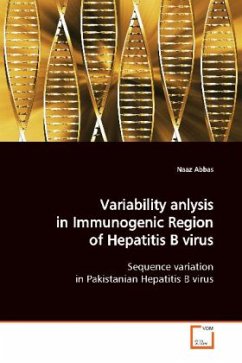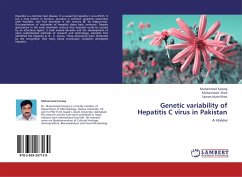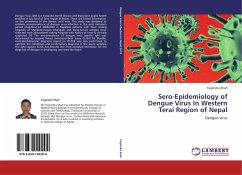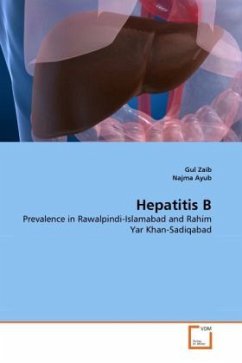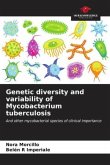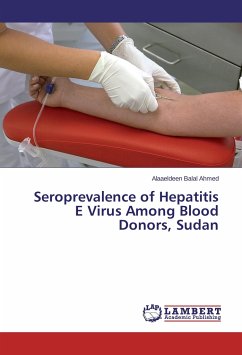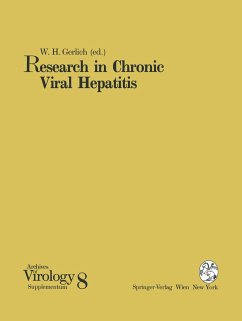The work was carried out to analyze variability in
the immunogenic regions of surface envelope genes of
Pakistanian Hepatitis B virus isolates. The PreS
region, the hypervariable and highly immunogenic
region, containing at least five epitopes, was PCR
amplified, cloned and sequenced. Sequence
alighnments and comparisons with other known HBV
sequences from different parts of the world were
performed in order to build a phylogenetic tree and
to check if certain amino acids mutations tend to
recur in certain places within the hypervariable
region. On the basis of Phylogenetic analysis of
PreS1 region from 12 newly sequenced Pakistanian HBV
isolates, it appears that Genotype C is the most
prevalent genotype in Pakistan and then comes
Genotype D. It was also concluded that four
mutations shared by NA004, NA018 and NA020 may be
prevalent mutations in the Pakistanian ayw subtype.
Six novel sequences and 13 mutations explored during
this study may be specific to Pakistanian HBV
isolates hence this information may be potentialy
valuable for diagnostic puposes and for HBV vaccine
development in Pakistan.
the immunogenic regions of surface envelope genes of
Pakistanian Hepatitis B virus isolates. The PreS
region, the hypervariable and highly immunogenic
region, containing at least five epitopes, was PCR
amplified, cloned and sequenced. Sequence
alighnments and comparisons with other known HBV
sequences from different parts of the world were
performed in order to build a phylogenetic tree and
to check if certain amino acids mutations tend to
recur in certain places within the hypervariable
region. On the basis of Phylogenetic analysis of
PreS1 region from 12 newly sequenced Pakistanian HBV
isolates, it appears that Genotype C is the most
prevalent genotype in Pakistan and then comes
Genotype D. It was also concluded that four
mutations shared by NA004, NA018 and NA020 may be
prevalent mutations in the Pakistanian ayw subtype.
Six novel sequences and 13 mutations explored during
this study may be specific to Pakistanian HBV
isolates hence this information may be potentialy
valuable for diagnostic puposes and for HBV vaccine
development in Pakistan.

